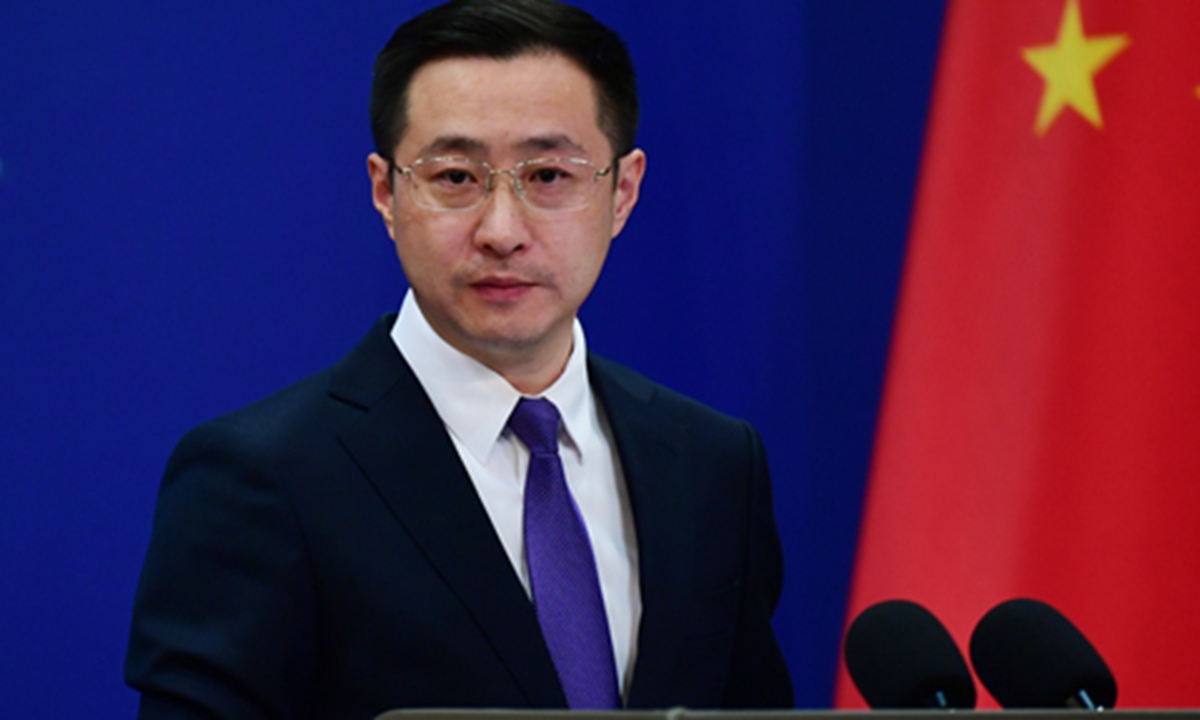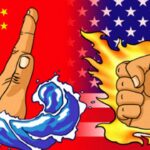Chinese foreign ministry on Tuesday expressed firm opposition to the US’ latest move to finalize rules to curb tech investments in China and vowed to take all necessary measures to resolutely safeguard the country’s legitimate rights and interests.
The US’ continuously intensifying tech crackdown campaign will further disrupt normal business activities, especially those of US companies that are expanding or plan to expand operations in the vast Chinese market, but it will not stop China’s growing capability for independent technological innovation, experts noted.
The US Department of Treasury issued on Monday local time a final rule to implement an executive order addressing US investments in certain national security technologies and products in countries of concern.
In the outbound order, US President Joe Biden identified China, along with the Hong Kong Special Administrative Region (HKSAR) and Macao Special Administrative Region, as a country of concern. The technologies and products relevant to the prohibition and notification requirement are identified in the outbound order as semiconductors and microelectronics, quantum information technologies and artificial intelligence (AI).
“The Biden-Harris Administration is committed to protecting America’s national security and keeping critical advanced technologies out of the hands of those who may use them to threaten our national security. AI, semiconductors, and quantum technologies are fundamental to the development of the next generation of military, surveillance, intelligence and certain cybersecurity applications like cutting-edge code-breaking computer systems or next generation fighter jets,” said Assistant Secretary for Investment Security Paul Rosen.
The rules, which were proposed in June by the US Treasury Department, were directed by an executive order signed by Biden in August 2023. The final rules will become effective on January 2, 2025, administered by the newly created Office of Global Transactions, within the Treasury’s Office of Investment Security.
Commenting on the US move, Lin Jian, a spokesperson from China’s Foreign Ministry, said at a press conference on Tuesday that China expresses strong dissatisfaction and firm opposition to the US imposition of investment restrictions on China, and the Chinese side has made representations with the US and will take all necessary measures to resolutely safeguard its legitimate rights and interests.
A spokesperson from the HKSAR government strongly opposed the US deliberately targeting China and its HKSAR region under various pretexts for political gain, which disrupts normal investment and trade activities, and undermines the free market and economic order. The US will reap what it sows, especially as the trade surplus it has earned from bilateral trade with Hong Kong over the years will be affected, the spokesperson said.
The spokesperson further stated that the so-called restrictions not only disrupt normal commercial activities between the HKSAR and the US, but also affect the stability of the global supply chain, harm the interests and commercial benefits of American companies, and impact bilateral economic activities. It is a political maneuver that damages others as well as US businesses. The HKSAR government will join forces with the central government to defend national interests and protect the interests of Hong Kong businesses, the spokesperson noted.
“The US has always used national security as an excuse to suppress China’s development. Although the order mentions ‘countries of concern,’ the US government specifically pointed out China, indicating that the US is no longer hiding its true intentions,” Gao Lingyun, an expert at the Chinese Academy of Social Sciences in Beijing, told the Global Times on Tuesday.
From restricting China’s purchases of technology products and equipment to the recent limitations on capital flows, the US has developed a systematic plan to contain China’s tech development. However, the US’ latest move also shows that the series of technological suppressions against China has not achieved its intended goals, and now Washington has run out of strategies, said Ma Jihua, a veteran telecom industry observer.
Despite the US suppression, the country has already achieved rapid development in fields such as quantum technology and AI, and the US’ latest move will not stop China’s independent innovation, Ma told the Global Times on Tuesday.
Market makes choice
Compared with the US government’s restrictive measures against China, some US companies have continued to expand in the Chinese market.
On Monday, US chipmaker Intel announced it was expanding its packaging and testing facility in Chengdu, Southwest China’s Sichuan Province, the Securities Times reported. The expansion includes setting up a customer solutions center to improve the efficiency of local supply chains.
On Friday, China’s Commerce Minister Wang Wentao met with Apple CEO Tim Cook in Beijing, during which Cook said that China’s rapid development has helped Apple achieve fast and sustainable growth, pledging to increase investment in the supply chain, R&D and other areas.
Ma said that compared with US politicians, who use containing China as a tool to gain political leverage, the US business community deeply understands the complementarity between the Chinese and US economies and know that deepening cooperation with China is a necessary trend.
Gao noted that investment activities should be determined by businesses based on their own needs, not by politicians. The US imposition of investment restrictions on China will distort the flow of market elements, contradicting the market security that the US claims to uphold and disturbing the stable development of China-US economic ties.
Once the restrictions are implemented, relevant US companies will miss out on one of the most dynamic markets in the short term, Gao warned, urging the US to heed the voices of the business community and not to further pursue a path of unilateralism.













